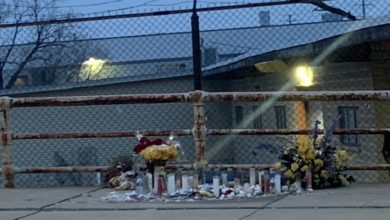While national attention has been focused on the success of Loyola University Chicago’s basketball team, the university has become the site of a major labor battle. One April 4, the graduate students’ union joined with a union of non-tenure track faculty to stage a walkout which drew in more than three hundred students, faculty, and members of the community. The union cites the university’s unwillingness to negotiate a contract, poor pay, and large course load as being the primary motivations behind the decision to stage the one day strike and walkout. Unionists connected the
discrimination that they experienced at the hands of the union-busting administration to the discrimination which has hit students of color suffering from several incidents of racial profiling perpetrated by campus police.
In 2016, the National Labor Relations Board ruled that graduate students at private universities could form unions. The graduate students at Loyola immediately set to work forming a union to fight for better pay. Many graduate students are forced to find second jobs to help pay for school and to support themselves. In October 2017, Loyola University decided that graduate students were not employees of the school but students, and thus had no right to organize. Anyone who has been a graduate student knows the grading and teaching graduate students do is work—work that deserves proper compensation. By not recognizing the right of graduate students to organize, the university denies that the work graduate students do for the university is of any value. The graduate students on strike sought to show the university how much the school needs them to function.
In addition to the struggle of graduate students, contract negotiations between the union of non-tenure track faculty and the Loyola administration have gone on for 21 months, revealing that the school is negotiating in bad faith. Rebecca Scott, an adjunct instructor of philosophy at Loyola, explained how the lack of a contract was affecting her. “Adjunct faculty, for a long time, have been treated really poorly. I currently have a second job as a substitute teacher because I don’t make enough money to support myself by adjuncting.” The precarious working conditions of adjunct and non-tenure track faculty remain a disgusting blight on the university.
Strikers noted the hypocrisy of an administration that considers itself oriented towards social justice when students and faculty are silenced. Following the racist assault of a student by Loyola police on February 24, students held a two hour town hall where many shared similar stories of racial harassment and abuse. Nothing has been done. More than a month of strong pressure from the students has not caused the administration to take any action holding the police accountable. Student Alan Campbell demanded, “We want less police on our campus and in the surrounding Rogers Park neighborhood. We want an end to the harassing and assaulting of students of color, our community members, and neighbors.” These strikers understand that the struggle against racial oppression is part and parcel with the struggle against economic oppression.
At Loyola University of Chicago the struggle continues. Only time will tell how long it will take the administration and the unions to come to a contract deal. The great strength of workers is their ability to withhold their labor power. When workers withhold their labor, they deprive the bosses of the ability to make a profit. In these moments, workers realize that the bosses need them, but that they don’t need the bosses.






